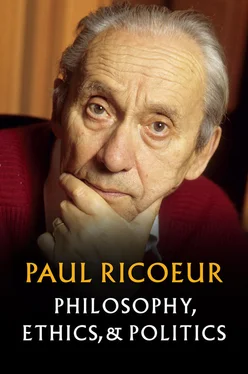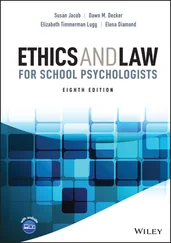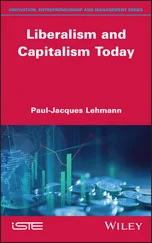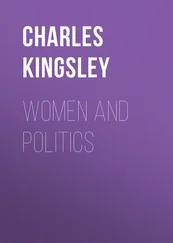In this passage from one problematic to the other, what is the place of the “work of mourning”?
In History and Truth , after the events in Budapest in 1956, I added a text titled “The Political Paradox.” 5It is not by chance that in a book called History and Truth a third term appears – precisely the political – understood as the site of a major conflict between the meaning which is given by the form of the legal State and the violence that remains in every State as such. This is where the deep-seated irrationality of all power resides. In my work, the notion of the paradox of the political takes the place of the meaning of history, which was believed to contain a supra-moral injunction. It is on this basis that, for Hegel, we carry out the mourning, in the sense of the “work of mourning.” It is not a matter of lamentation, but of moving toward the future. In performing this work of mourning, we show we are capable of surviving the objects lost.
Can Oneself as Another be considered a sort of completion? Hadn’t your intention been to extend the reach of Husserl’s phenomenology (a philosophical discourse organized around phenomena) into French philosophy in the form of a philosophy of action? May I indicate the new philosophical dimension that results from this, narrowing it to the generalized effort to replace the formidable pair “question-response,” with a new pair “call-response”?
The organizing principle of Oneself as Another is the idea of the acting and suffering human being, or as I sometimes say, the capable human being. This is a being capable of speaking, capable of acting, capable of promising, one whose actions can be coordinated with values one has given to oneself (values potentially ascribable to oneself and to an other than the self). To my mind, this notion of the capable human being has become absolutely central, because it allows me to link together, on the one hand, what could be called an anthropology – a kind of general description of what it is to be a human being – and, on the other hand, a morality, inasmuch as a human being is essentially worthy of respect to the extent that I discern in that being the capacity to be himself or herself. From this standpoint, I adopt as the first maxim of my action: any other life, by reason of its capacities, is just as important as mine. In addition, what characterizes humanity in human beings, what makes them worthy of respect, is not situated on the plane of morality alone, but on the plane of the political as well, making the Polis the place where human capacities are realized. In this regard, I would say that there are vast numbers of men and women who, for me, are faceless, but with respect to whom I have rights and duties. This is the level of the institution, notably of power and of the political. The idea that there are two others – the other who is close, the other of encounters and dialogues, and a distant other, who exists as a relation in and through an institution – this idea should have a place in contemporary philosophy. The other, too quickly and too facilely, becomes “you” (“ toi ”), whereas in reality relations of friendship and love stand out against a backdrop of otherness that extends to the frontiers of humanity. There is, in this regard, a beautiful passage in Perpetual Peace by the German philosopher, Immanuel Kant, where he asserts that this peace implies a “universal hospitality.”
I would like to interrupt your reflection here with a question that to me seems not unrelated to current events. Even though certain teleological interpretations of Karl Marx – in the mode of “communism is the society of bright tomorrows” – have given birth to monstrosities from the standpoint of human emancipation, do you think there could still be a future for a deontology in which Marx would be seen as a thinker of the possible?
With other thinkers, I share the view that it is as if Marx’s work were covered over by Marxism, in particular by the German Marxism of the Second International. In truth, what failed historically was the legacy of that Marxism. From this sprang the invention of the most stupid conceptions, such as the opposition between “proletarian science” and “bourgeois science,” “proletarian art” and “bourgeois art.” And probably also the idea that politics, morality, and religion are “superstructures.” Now, basically everything is both infrastructure and superstructure, depending on the standpoint of the analysis. Our problem is to determine to what extent Marx is left unscathed by all this. The end of ideological Marxism – that is to say, of Marxism used as a justification for political power – frees Marx for readings in which we can read him in exactly the same way as the economists he criticized. With Marx, in fact, we have three questions on our hands!
Starting off, does anything remain of his economics in an age in which production is no longer the extension of human physical effort – as were the energies exerted in the nineteenth century – but instead, with cybernetics, an extension of the brain, of logic? Does Marx belong to an outmoded technological era, or does his work contain a way of conceptualizing “living labor” that continues to be effective? I believe that this must be approached in a free and open manner, now that power is no longer at stake here. We can reread his work freely and tranquilly, in the same way we would do for Spinoza or Kant.
Next, in addition to determining up to what point Marx is untouched by the deviations that claimed to follow from his thought, we must also determine to what extent he did justice to the specificity of the political realm. I had doubts about this after the events in central Europe. Is there not in Marx the prejudice (in the strong sense of the term) that there is no history proper to the political and that the latter is nothing but an effect of the history of economics? I believe that important segments of the history of Europe have not been sufficiently considered. I have in mind the history of free cities – Italian, Flemish, Hanseatic – and not simply those of English parliamentary democracy. There is perhaps a properly political history of liberty which overlaps and intersects with the history of the relations between labor and capital. And, based on this, there may be an evil specific to politics that is not necessarily the expression of the economic evil of exploitation, an evil that would stem from the very exercise of power. A certain silence of Marx on this aspect has created a breach in which openly Machiavellian uses of power have been swallowed up.
Finally, on the symbolic level of signs, language, and norms – a level that is foundational in its own way – do we not encounter the limit of an explanation referring back to Marx? For example, if mechanization did not develop in Antiquity, it was not only because there were slaves, but also because in that period work was not valued as the expression and the means of human education and development. Is it not only once labor has become fundamental to the education of the human species that its emancipation will be called for? This question concerns the place of technologies in relation not only to the political realm but to the symbolic realm as well. This is the domain that was the most deeply concealed by Marxism after Marx. I condemn this period for its occultation of the profound resources of Marx’s work, the essential content of which was hidden behind a very ideological vision serving to justify a power which itself was in no way grounded in the great texts of Marx.
In Oneself as Another you reserve the term “ethics” for the “aim of an accomplished life” and the term “morality” for “the articulation of this aim in norms characterized at once by the claim to universality and by an effect of constraint.” 6 You write: “‘From you,’ says the other, ‘I expect that you will keep your word’; to you, I reply: ‘You can count on me.’” 7 In this way, do you think you have succeeded in articulating the contradiction between the claim to universality of human rights and duties on the one hand, and the singularity of each individual on the other?
Читать дальше












